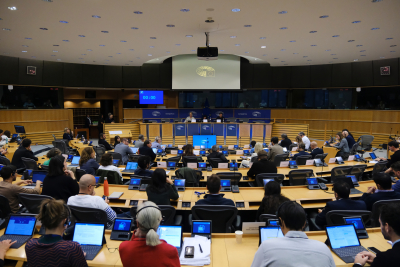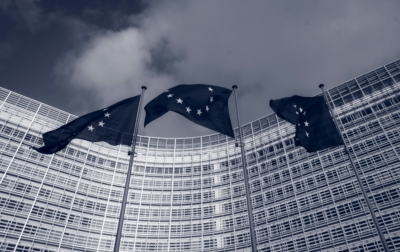European Parliament report on money-laundering reforms needs urgent action
12/12/2017 Brussels. Tomorrow, the European Parliament is expected to adopt its PANA report prepared in the wake of the Panama Papers scandal which was uncovered by the International Consortium of Journalists over 18 months ago. The text shall set ambitious proposals and recommendations to effectively address the kind of secrecy exposed which allows the corrupt to channel illicit wealth offshore. These are very welcome but must be followed up by immediate EU action, according to Transparency International EU.
The EU will not need to wait too long for the occasion to arise. EU negotiations over the revision of the European Anti-Money Laundering Directive are resuming tomorrow and will provide an historic opportunity for the EU to fix its anti-money laundering rules.
The three institutions negotiating the revisions must heed the calls of the European Parliament and not settle for anything less than grant full public access to beneficial ownership registers of companies and trusts. At present some members of the Council are blocking progress on transparency around trusts and other corporate vehicles often used for laundering dirty money, according to Transparency International EU.
“A small group of Member States is resisting full transparency of the ownership of trusts, despite the evidence of their abuse for the purposes of corruption. These governments need to heed the call of the European Parliament for public registers. Anything short of this level of transparency means that corruption and organized crime will once again escape the glare of public scrutiny,” said Laure Brillaud, Policy Officer for Anti-Money Laundering at Transparency International EU.
Notes to editors:
On anti-money laundering, and beneficial ownership transparency in particular, the PANA Recommendations shall:
- call on the Commission and the Council to take seriously its ambitious revision of AMLD IV and in particular to tighten up the definition of who is a beneficial owner, by disallowing senior managers, nominee directors and other proxy agents to be identified as beneficial owners unless they fulfil the criteria, by granting full public access to beneficial ownership registers of companies and trusts and by implementing a more effective sanction mechanism for breaches of the AMLD
- urge the Commission and the Council, therefore, not to water down Parliament’s strong proposal during the ongoing trilogue negotiations
- stress the need for regularly updated, standardised, interconnected and publicly accessible beneficial ownership registers of companies, foundations, trusts and similar legal arrangements to prevent the anonymity of ultimate beneficial owners (UBOs); calls for a lowering of the current threshold for shareholding in the definition of beneficial ownership
- call, furthermore, for the creation of a global register of legal entities, including companies, trusts and foundations




